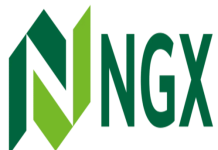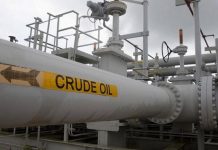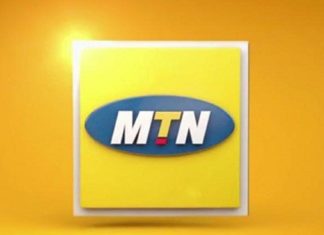At the weekend, Justice Nnamdi Dimgba of the Federal High Court Awka Division spoke out strongly in support of the federal government, the Central Bank of Nigeria (CBN), the Federal Ministry of Finance, and the National Assembly for establishing the Asset Management Corporation of Nigeria (AMCON) and giving it special powers to recover its troublesome bad debts.
Dimgba remarked this, according to a statement, while speaking to participants at a Legal Academy interactive session for Land Registry Officials and Corporate Affairs Commission officials.
As a ‘bad bank,’ AMCON now has a huge outstanding debt of over N4.4 trillion owed to them by a few individuals who wrecked a number of financial institutions by taking out large loans with no intention of repaying them.
Read also: Insecurity: Gunmen Kill four oil workers and kidnap six others in Bayelsa
As a result, when AMCON was founded in 2010, the problematic loans were sold to it. AMCON recapitalized a large number of the afflicted financial institutions and stabilised the financial sector after taking over the bad debts. Following that, AMCON’s mandate is to pursue the debtors in order to recover the loan.
Apart from the banks, other sectors of the Nigerian economy were affected, including oil and gas industries, manufacturing companies, airlines, real estate and construction companies, marine companies and power generation companies, and insurance companies, to name a few.
“However, as AMCON steps up its efforts to collect the massive outstanding obligations, these obligors have honed the art of hiding behind various technical flaws in the AMCON Act in order to thwart collection.”
“On the other hand, the federal government, through the National Assembly, is planning forward and has made certain revisions to the Act establishing AMCON, giving AMCON some extra authorities that will speed up their recovery task.”
Read also: Nigerians warn the Federal Government not to overburden us with fuel subsidies
“Only recently, President Buhari signed the Asset Management Corporation of Nigeria (Amendment) Act, which amends the AMCON Act No.4, 2010, into law for the second time.
“Among other things, the AMCON Act extends the tenor of the Resolution Cost Fund (RCF) and grants access to the Special Tribunal established by the Banks and other Financial Institutions Act 2020, which gives AMCON the authority to… “take possession, manage, foreclose or sell, transfer, assign or otherwise deal with the asset or property used as security for Eligible Bank Assets (EBAs), and related matters,” according to the statement.
This most recent trend has also drawn criticism, particularly from obligors and those sympathetic to them. President Muhammadu Buhari, the National Assembly, the federal Ministry of Finance, AMCON, and the central bank were all on Dimgba’s side.
He stated that they must do all possible within the law to ensure that the individuals in possession of Nigeria’s collective commonwealth restore them to the government through AMCON.
According to him, the only way to compel payback is to support AMCON, which is what those who formed the agency are doing and have done with the newest revision to the AMCON Act.
Read Also: The massacre in Lekki and a country in the dark
“Because AMCON is a ‘Particular Animal’ created by the federal government of Nigeria to cope with special problems in the country, which began with the global financial catastrophe that affected many countries around the world, including Nigeria,” the legal luminary stated.
Earlier in his presentation, AMCON’s Executive Director, Operations, Mr. Aminu Ismail, who spoke on behalf of the corporation’s MD/CEO, Mr. Ahmed Kuru AMCON, reminded participants that the AMCON mandate remains a national assignment that requires participation from all government departments.
AMCON’s entire current exposure on all Eligible Bank Assets (EBAs) is currently N4.4 trillion, he said, indicating that high-level coordination was required. Only 350 outstanding obligors account for 83% of the overall EBA balance, and 244 of the top 350 obligors are awaiting judgement in various courts. The collateral coverage, on the other hand, is only 16% of the entire current exposure.
Join Television Nigerian Whatsapp Now
Join Television Nigerian Facebook Now
Join Television Nigerian Twitter Now
Join Television Nigerian YouTUbe Now




